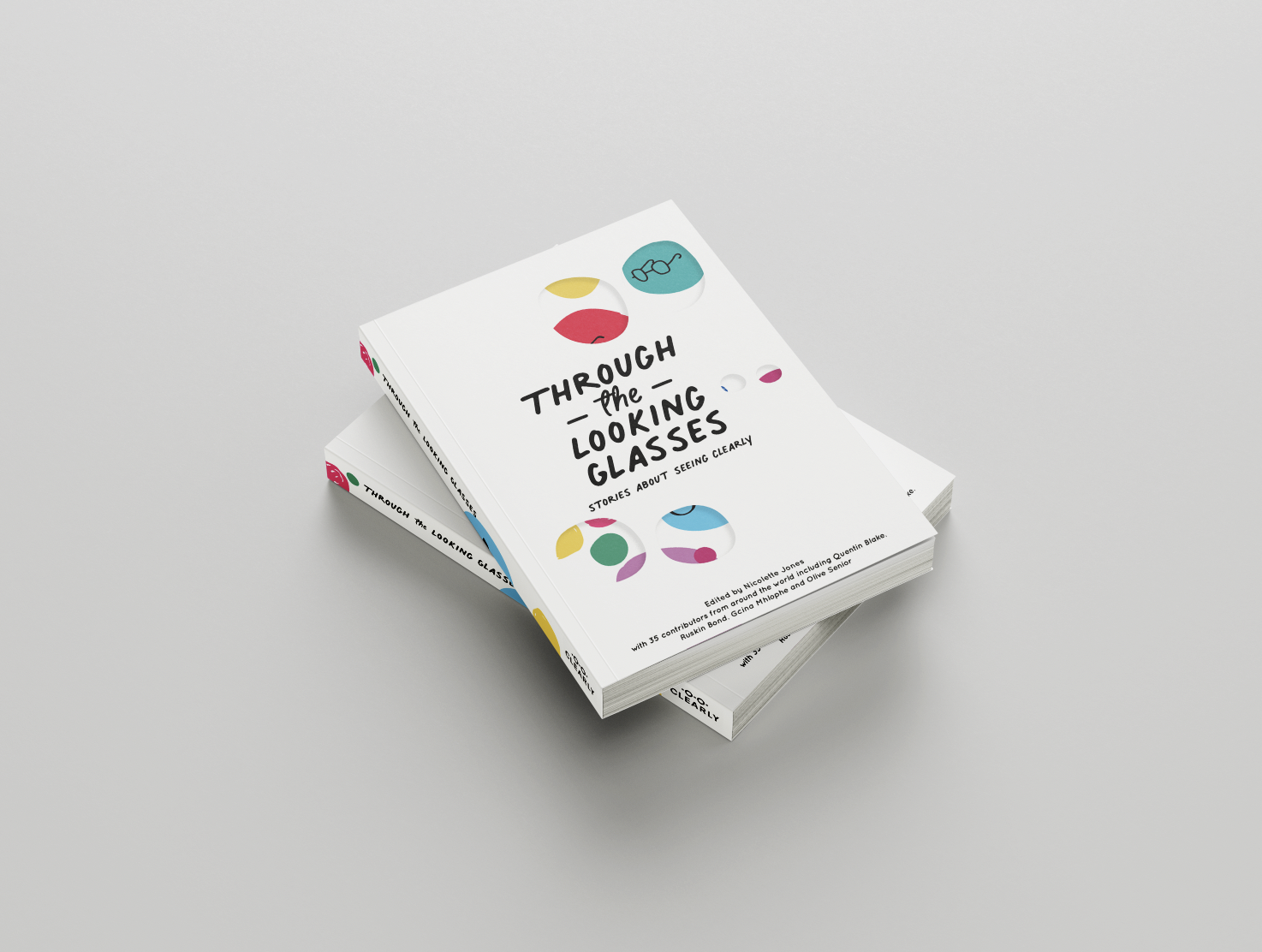Children’s laureates help mark World Sight Day

Free digital download available
World Sight Day is marked today (Thursday 8 October 2020) by the publication of a digital book – Through the Looking Glass: Stories About Seeing Clearly – to which an array of authors and illustrators have contributed.
The new collection hails the joys of clear vision and the need for sight tests and affordable glasses to achieve it. Five children’s laureates – Quentin Blake, Lauren Child, Chris Riddell, Michael Morpurgo and Cressida Cowell the current laureate – have been involved in the ground-breaking project.
Throughout today (Thursday) around 15 personalities, authors and sports people from around the world will read a series of bedtime stories from the book as the sun goes down in their time-zone. All will be broadcast on social media – and readers include Billie Jean King, the tennis legend, film star Michelle Yeoh, comedian Adam Hills, and Princess Alia of Jordan.
The book and the bedtime stories initiative are the latest moves in vision charity Clearly’s five-year campaign, funded by the philanthropist James Chen, to highlight the social and economic advantages of clear vision, and the need for all to have access to sight tests and affordable glasses.
Cearly has also today released the results of a YouGov survey it commissioned to take place between August and September this year, of 506 children aged between eight and 15 years when the majority were being schooled at home. When asked how their eyes felt at the end of a typical day’s home-schooling, 17 per cent reported tired eyes, 23 per cent reported headaches, and a further 13 per cent reported both. Only five per cent of those consulted said they had not received schooling at home.
Further, one in 10 children reported that their sight “was worse now than before the lockdown”, although 10 per cent felt their vision had improved.
The respondents were also given words or phrases that they might associate with glasses: 39 per cent associated wearing glasses with “being clever”; one in five associated the word “trendy” with glasses. Traditional stereotypes about children with glasses being shy or not good at sports were only held by 11 per cent and 10 per cent of those questioned respectively.
Almost a quarter (23 per cent) of the children in the age group survey wore glasses and/or contact lenses every day with a further nine per cent wearing them once a week.
James Chen, founder of Clearly, said: “Nothing is more important than the health and well-being of our children. We must protect their eyes and everything to do with their physical and mental health. This survey shows us that whatever happens in the coming months we must do our utmost to keep our children in their schools.”
Through the Looking Glass: Stories About Seeing Clearly is available to download for free from 8 October here.